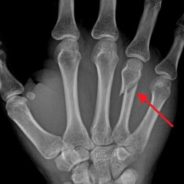The Wounded Storyteller (Part One)–The Restitution Narrative
There are certain books that I can remember where I was when I first began to read them. Perhaps something like this has happened for you. I found this book in the Wake Forest Library, and I took the book and began reading it on a low stone wall near a creek not far from the library. This was several years ago now. As I read I had a feeling as if thoughts and stories inside my head were literally rearranging and falling into new patterns. It was as if the author, Arthur Frank, had taken the thousands of stories of illness and loss I’d heard in my life—many of these told to me by patients—and he’d placed them into a kind of new and pleasing order, one that made an inordinate sense. Arthur Frank is a medical sociologist and a survivor of testicular cancer. He opens The Wounded Storyteller by quoting a woman, Judith Zaruches, with chronic fatigue syndrome. He quotes from a letter that she wrote to him: The destination and map I had used before were no longer useful. The Wounded Storyteller speaks to the stories people tell (and write) when the old story—the one used prior to illness or loss—no longer suffices. The book is a dense book—it contains many things. The part I have found most useful—most illuminating—is in the middle chapters of the book, where Arthur Frank names three kinds of stories that people tend to make in the wake of illness and suffering. He acknowledges, at the outset, the fluid nature of these stories. People move back and forth among the three kinds of stories—the stories intersect and overlap. Still, he points to the value of naming the kind of story one is tending to tell. (It’s a bit like beginning to know where one is on the map—or perhaps knowing which map one is using.) The first story is one he calls the restitution narrative. At its simplest it goes like this: I was sick and then I recovered and now I am my old self again. Or, perhaps: I am sick now but I will recover and then I know I will be my old self. This is the narrative that arises most naturally in the wake of an acute illness—after the flu, or ordinary pneumonia, or a broken bone. It can occur in the wake of certain kinds of cancer, when, for instance, the surgeon comes back with the report that he or she got it all, that the margins are clear. It can also occur in the wake of a replaceable loss. A tree falls on a house and the roof is crushed—but then the roof gets fixed. I tend to picture this first narrative like a simple algebraic equation. If I was X before my illness, then I know the story has come to an end—and a good end—when I am recovered to X again. I am back at work. I’m running again, or swimming, or driving, or dancing, or whatever it is that makes me feel like I am my old and familiar self. X = X. Restored. This is a very useful narrative, I think. It’s a very comforting narrative. It works for many things, including many illnesses. In fact, I don’t know that I...
read more
